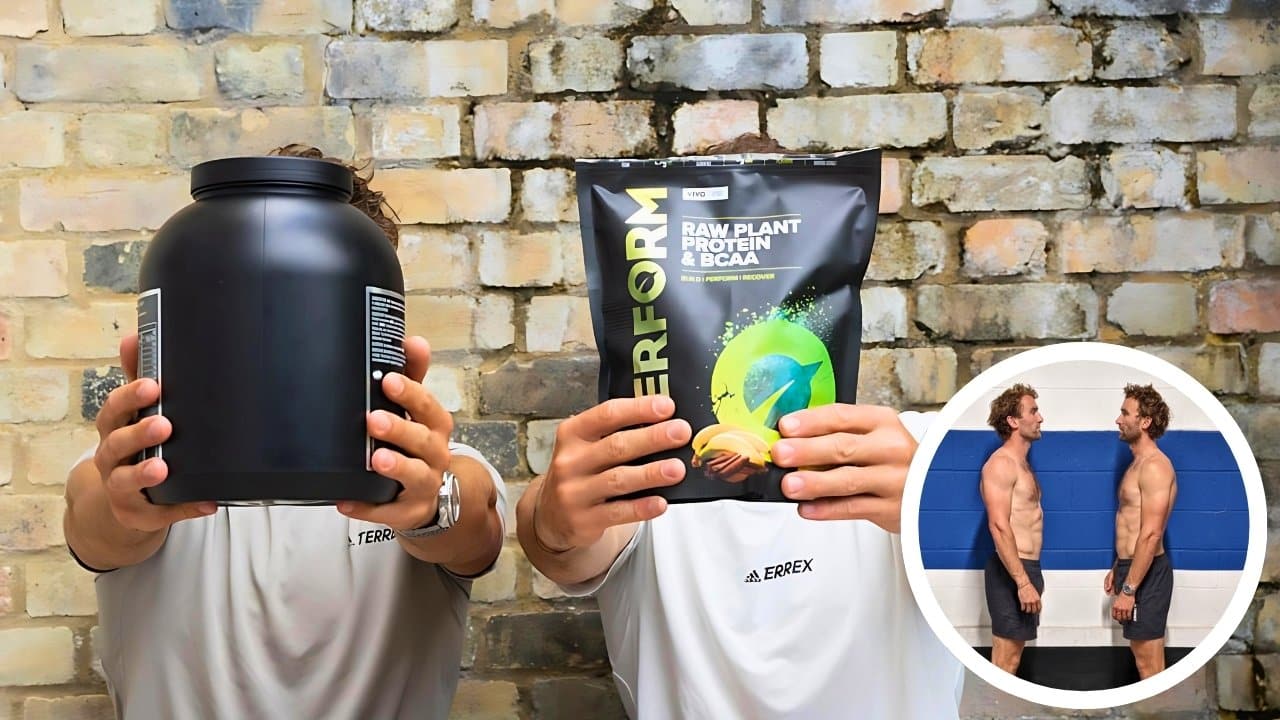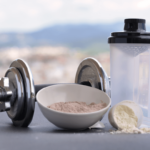Ever wondered if plant-based protein can build muscle as effectively as animal protein? Identical twins Hugo and Ross put it to the test in a 12-week fitness challenge.
They meticulously tracked their progress, revealing surprising differences in how each protein type affects your body. Find out if rapid results or long-term gains are better for you.
Get the inside scoop on how your protein choice could be the key to achieving your fitness goals.
Jump to:
Study Overview
The twin brothers participated in a three-month endurance program designed to discern performance differences between a commercial animal-based protein and Vivo Life’s plant-based PERFORM protein shakes.
Initially, both weighed 89 kg, setting a controlled baseline for the experiment.
Comparative Analysis of Physical Changes
Weight and Fat Percentage
Throughout the program, both participants showed notable changes in body weight and fat percentage:
- Ross’s Transformation: Ross’s weight decreased to just under 87 kg. His fat percentage experienced a dramatic drop midway through the program, illustrating a significant reduction in body fat.
- Hugo’s Transformation: In contrast, Hugo’s weight reduction was more pronounced, dropping to below 85 kg. His decrease in fat percentage was gradual, suggesting a steady loss over time.
Muscle Mass Development
Muscle mass data revealed inverse patterns to fat loss:
- Ross’s Muscle Gain: Corresponding with his rapid fat loss, Ross saw a swift increase in muscle mass, highlighting a quick adaptation to the protein intake.
- Hugo’s Steady Growth: Hugo’s muscle mass increased steadily, mirroring his fat loss pattern and suggesting a consistent growth over the period.
Performance Outcomes
The culmination of the study was marked by significant improvements in physical performance, measured through pre- and post-program physiological tests:
- Hugo’s Achievements: Hugo managed to enhance his push-up count dramatically, from 25 to 45 push-ups, showing a robust increase in upper body strength.
- Ross’s Strength Gain: Ross improved his deadlift from 120 to 140 kgs, indicating substantial gains in lower body strength.
Conclusions
The detailed 12-week comparative study between plant-based and animal-based protein shakes revealed distinct differences in how each protein type supports fitness goals. Both Hugo and Ross achieved commendable gains in muscle strength and body composition, yet the paths and outcomes highlighted some clear distinctions:
Ross’s Experience with Animal Protein:
Ross, who consumed animal-based protein, experienced quick and significant changes. His body rapidly lost fat and simultaneously gained muscle, suggesting that animal protein may facilitate faster body composition changes.
This rapid transformation could be particularly appealing to those looking to make quick adjustments to their physique.
Hugo’s Experience with Plant Protein:
Hugo’s results from the plant-based protein showed a more gradual improvement. His steady decrease in fat and consistent gain in muscle mass suggests that plant-based protein may support sustained growth and long-term stability in body composition.
This might be preferable for individuals seeking gradual and sustainable improvements rather than abrupt changes.














